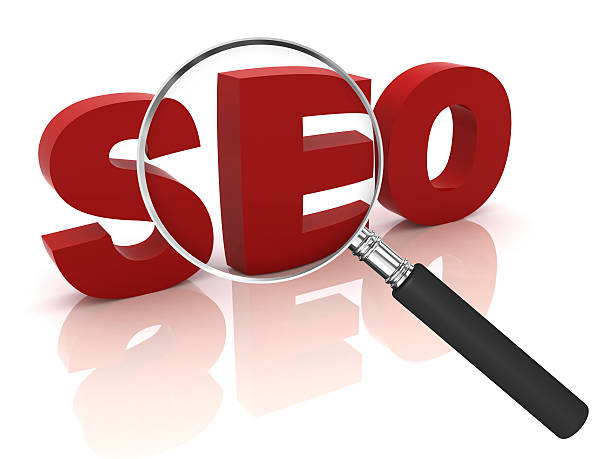Getting Started with SEO Fundamentals and Its Importance in the Digital World
![]()
In today’s highly competitive world, an online presence is of paramount importance for any business or website.
However, simply having a website is not enough; you must ensure that your target audience can find it.
This is where SEO (Search Engine Optimization) comes into play.
#SEO or #Search_Engine_Optimization is a process that prepares your website for higher rankings in organic search engine results like Google, Bing, and Yahoo.
The main goal of SEO is to increase the quality traffic to your website, meaning attracting users who are looking for the products, services, or information you provide.
This process not only helps increase visibility but also builds user trust and ultimately improves conversion rates.
Understanding the fundamentals of SEO is, in itself, a deep educational process that every webmaster should master.
The importance of SEO extends beyond merely attracting traffic; it means building a strong foundation for a sustainable digital presence and long-term success in the online space.
Without proper investment in SEO, even the best content and products might go unnoticed.
Therefore, learning and correctly implementing SEO principles is a vital step toward online success, allowing your website to stand out among thousands of similar websites and reach its intended audience.
This is a long-term investment whose results appear gradually and sustainably.
Are you tired of your company’s website not meeting your expectations? With Rasaweb, design a professional website that truly showcases your business.
✅ Increase attraction of new customers and sales leads
✅ Enhance your brand’s credibility and trust among your audience
⚡ Get a free website design consultation!
Types of SEO and Effective Strategies in Each Section

To fully understand the capabilities of SEO, it is essential to become familiar with its different types and related strategies.
Generally, SEO is divided into three main sections: On-Page SEO, Off-Page SEO, and Technical SEO.
Each of these sections plays an important role in improving your website’s ranking.
On-Page SEO refers to all optimizations performed within your website, such as keyword optimization in content, Title Tags, Meta Descriptions, URL structure, image optimization, and internal linking.
This section focuses on the quality and relevance of your content to target keywords.
Off-Page SEO includes activities performed outside your website to increase your Domain Authority, the most important of which is Backlinking.
Receiving links from reputable and relevant websites sends a positive signal to search engines that your content is valuable and trustworthy.
Technical SEO relates to the technical aspects of the website that affect search engine crawlability and indexability, including page loading speed, mobile responsiveness, Site Architecture, robots.txt files, and Sitemaps.
This is a specialized field that requires deep technical knowledge.
The intelligent combination of these three strategies is crucial for any successful SEO campaign.
This comprehensive approach ensures that your website is optimized for both search engines and users, both in terms of content and structure, ultimately leading to improved rankings and increased organic traffic.
Keyword Research: The Backbone of Successful SEO

One of the most important steps in any SEO strategy is keyword research.
Keywords are the phrases that users enter into search engines to find the information, products, or services they need.
Finding the right keywords helps you create content that precisely matches the needs of your target audience.
The keyword research process involves identifying words and phrases that not only have high search volume but are also relevant to your business or content and have manageable competitiveness.
This allows you to discover new opportunities for ranking in search results and attract more targeted traffic to your website.
For keyword research, various tools such as Google Keyword Planner, Ahrefs, SEMrush, or Moz Keyword Explorer are used.
These tools provide information about search volume, competition level, and related keywords.
Also, considering the User Intent behind each keyword is crucial.
Is the user looking for information (informational keywords), intending to buy (commercial keywords), or searching for a specific website (navigational keywords)? Answering these questions helps you produce content that precisely addresses user needs.
This section requires an explanatory and precise approach to implement the best strategy.
| Keyword Type | User Intent | Example |
|---|---|---|
| Informational | Gaining knowledge and information | “What is SEO?”, “SEO Tutorial” |
| Navigational | Finding a specific website or brand | “Digikala”, “Facebook” |
| Commercial Investigation | Researching products or services before purchase | “Best laptops for students”, “Samsung phone comparison” |
| Transactional | Intention to buy or perform a specific action | “Buy flight tickets”, “iPhone 15 price” |
Content Optimization for SEO and Users

Content is king; this phrase holds more true than ever in the world of SEO.
Creating quality content optimized for search engines while being engaging for users is one of the main pillars of SEO success.
Your content should not only answer target keywords but also be informative, comprehensive, accurate, and unique.
Search engines increasingly emphasize user experience (UX) and the real value of content for the reader.
This means that content produced merely for keyword stuffing will not perform well in the long run.
Content optimization includes the smart use of keywords in titles, subtitles, paragraphs, and images, but should never come at the cost of readability and appeal.
For producing SEO-friendly content, optimizing the Title Tag and Meta Description is of great importance; these are the first things users see in search results and should be enticing.
Using appropriate headings (H1, H2, H3…) to organize content and improve readability, as well as adding relevant and optimized images and videos, all contribute to improving SEO ranking.
It is important that your content answers user questions and provides comprehensive information.
Providing comprehensive guidance in the form of textual content, videos, or infographics can show search engines that you are a credible source in the relevant field.
Always remember that the ultimate goal of SEO is to provide the best possible user experience, and quality content is the cornerstone of this experience.
Continuously updating content can also help maintain its freshness and relevance in the eyes of search engines.
Does your current website reflect your brand’s credibility as it should? Or does it drive away potential customers?
Rasaweb, with years of experience in designing professional corporate websites, is your comprehensive solution.
✅ A modern, beautiful website consistent with your brand identity
✅ Significant increase in lead generation and new customers
⚡ Contact Rasaweb now for a free corporate website design consultation!
Internal and External Linking: A Vital Role in SEO

Links are the lifeblood of the internet and, consequently, one of the most important factors in SEO ranking.
Linking involves creating connections between different pages of your website (internal linking) and receiving links from other websites to your website (external linking or backlinks).
Both types of linking are essential for the success of an SEO strategy and play different roles.
Internal linking helps search engines better understand your website’s structure and discover and index its various pages.
This also helps distribute “Link Equity” throughout your website, meaning that pages with more authority can pass that authority to other internal pages.
A logical and user-friendly internal link structure not only improves user navigation but also indicates to search engines which of your pages are more important.
On the other hand, external linking, or acquiring backlinks from other websites, acts as a signal of trust and authority for search engines.
When a reputable website links to your content, it tells the search engine that your content is valuable and trustworthy.
The quality of links is more important than their quantity; one link from a highly authoritative and relevant website is worth far more than dozens of links from low-authority or spammy websites.
External linking strategies include creating Linkable Assets, participating in online communities, and using analytical methods to find linking opportunities.
This process should be done naturally and ethically to avoid search engine penalties.
Overall, a comprehensive linking strategy significantly boosts your website’s SEO power.
Technical SEO: In-depth Review of Website Structure and Speed

Technical SEO is one of the critical aspects of search engine optimization that is often overlooked, yet plays a very important role in your website’s crawlability and indexability by search engines.
This part of SEO involves optimizing your website’s technical infrastructure to ensure that search engines can easily find, understand, and display your content in search results.
Key technical SEO elements include page loading speed, mobile responsiveness, URL structure, HTTPS protocol usage, site structure, and the use of Schema Markup.
Page loading speed is an important ranking factor; slow websites can harm user experience and increase bounce rates.
Tools like Google PageSpeed Insights help you identify and fix speed-related issues.
Website responsiveness for mobile devices is also highly important, as most searches today are conducted via smartphones, and Google has adopted a Mobile-First Indexing approach.
Using HTTPS is essential for website and user security and is considered a ranking factor by Google.
A logical URL structure and XML Sitemaps help search engines better understand and index your content.
Structured data also helps search engines understand your content and display it in a richer format (like rich snippets) in search results.
This section of SEO is highly technical and requires significant technical knowledge to optimize your website for search engine crawlers and prevent potential issues that hinder ranking.
Essential SEO Tools for Analysis and Performance Improvement

For any SEO specialist or webmaster, using the right tools to monitor, analyze, and improve website performance in search engines is of paramount importance.
These tools provide a comprehensive view of your website’s status, helping you identify issues and discover growth opportunities.
One of the most important and fundamental tools is Google Search Console.
This free tool from Google provides vital information about how your website is seen in search results, including clicks, impressions, keywords your website appeared for, and crawl and security issues.
Another tool, Google Analytics, allows you to analyze user behavior on your website, including traffic sources, time on site, bounce rate, and conversion paths.
In addition to Google’s free tools, there are also paid and more advanced tools that offer greater capabilities.
Among the most popular are Ahrefs and SEMrush.
These tools provide extensive features including advanced keyword research, backlink analysis, competitor analysis, technical SEO audits, and ranking tracking.
Proper use of these tools is an ongoing educational process that helps you support your SEO strategies with accurate data and information.
Choosing the right tool depends on your needs and budget, but the important point is to use the data these tools provide to make informed decisions and continuously improve your website’s SEO performance.
| Tool Name | Primary Use | Type (Free/Paid) |
|---|---|---|
| Google Search Console | Monitoring search performance, crawl issues, and security | Free |
| Google Analytics | Analyzing user behavior, traffic sources, and conversion rates | Free (Paid advanced versions) |
| Ahrefs | Keyword research, backlink analysis, competitor analysis | Paid |
| SEMrush | Competitor analysis, keyword research, technical SEO, content marketing | Paid |
| Moz Pro | Keyword research, rank tracking, link analysis, site audit | Paid |
Local and International SEO: The Broad Scope of SEO

SEO is not limited to national or global visibility; for many businesses, optimizing for local and international searches is of high importance.
Local SEO refers to optimizing your website for visibility in search results related to a specific location.
This type of SEO is vital for businesses with a physical presence, such as restaurants, shops, or service offices.
Its goal is to attract customers who are looking for products or services near you.
Key components of local SEO include creating and optimizing a Google My Business (GMB) profile, ensuring the accuracy of NAP (Name, Address, Phone) information across all online directories, acquiring positive customer reviews, and optimizing content for local keywords.
A strong presence on Google Maps and local listings can drive significant traffic to your physical business.
These explanations provide a complete explanatory approach to local SEO.
In contrast, International SEO is for businesses that aim to access global markets and operate in multiple languages or countries.
This type of SEO involves optimizing the website for audiences in different countries and languages.
Challenges in international SEO include choosing the appropriate domain structure (such as country code top-level domains (ccTLDs) or subdomains), using hreflang tags to specify the language and region for each page, translating and localizing content (not just literal translation), and correctly managing multilingual sites.
This comprehensive approach helps search engines deliver the correct version of your website to users in different geographical regions and with different languages, thereby extending the reach of your SEO beyond local boundaries.
Do you dream of a thriving online store but don’t know where to start?
Rasaweb is your comprehensive e-commerce website design solution.
✅ Attractive and user-friendly design
✅ Increased sales and revenue⚡ Get free consultation
The Future of SEO and Its New Trends

The world of SEO is constantly changing and evolving.
What is considered best practice today might become obsolete tomorrow.
Therefore, staying aware of trends and predicting the future is crucial for maintaining competitiveness.
One of the most important trends is the increasing importance of Voice Search.
With the widespread use of voice assistants like Siri, Alexa, and Google Assistant, how users search has changed and is moving towards more natural language.
This requires optimizing content for longer, more conversational keyword phrases.
Artificial Intelligence (AI) also plays an increasing role in SEO.
Google’s algorithms like RankBrain and BERT use AI to better understand user intent and deliver more relevant results.
This means your content should not only include keywords but also comprehensively answer user questions and cover topics in depth.
Additionally, Experience, Expertise, Authoritativeness, and Trustworthiness (E-E-A-T), which are important Google factors for evaluating content quality, have gained more significance.
This is especially critical for medical, financial, or legal content that requires high accuracy.
Core Web Vitals and user experience (UX) optimization are also gaining importance as direct ranking factors.
Page loading speed, interactivity, and visual stability all impact how your website ranks.
Finally, engaging content, such as interactive formats, videos, and podcasts, will become more important for attracting and retaining user attention and improving engagement signals.
Keeping up with these changes and implementing new strategies is essential for long-term SEO success.
Common SEO Mistakes and Ways to Avoid Them

In the process of optimizing a website for search engines, making mistakes can lead to loss of ranking, traffic, and even penalties from Google.
Understanding these common mistakes and knowing how to avoid them is an important part of any successful SEO strategy.
One of the biggest mistakes is Keyword Stuffing or excessive use of keywords in content.
Targeting keywords unnaturally not only harms content readability but can also be identified by search engines as a spamming technique and lead to penalties.
Duplicate Content is another common problem.
Publishing similar content on multiple pages or copying content from other websites confuses search engines and can reduce your website’s credibility.
Ignoring mobile optimization is also a fatal mistake.
Given that a large portion of searches are conducted via mobile devices, a website that is not responsive will provide a poor user experience and will struggle with rankings.
Neglecting page loading speed, spammy link building, and ignoring the importance of user experience (UX) are other common mistakes.
Some webmasters also forget that SEO is an ongoing process, not a one-time activity.
Search engine algorithms are constantly changing, and there is a need for continuous monitoring, analysis, and optimization.
By avoiding these mistakes and following SEO best practices, you can significantly increase your website’s chances of success and prevent unwanted penalties.
Frequently Asked Questions
| Question | Answer |
|---|---|
| What is SEO? | SEO, or Search Engine Optimization, is the process of increasing the quality and quantity of website traffic by improving the site’s ranking in organic search engine results like Google. |
| What are the main types of SEO? | SEO is divided into three main categories: On-Page SEO, Off-Page SEO, and Technical SEO. |
| What does On-Page SEO include? | On-Page SEO involves optimizing elements within the website, such as keywords, Title Tags, Meta Descriptions, content, URL structure, images, and internal links. |
| What is Off-Page SEO? | Off-Page SEO refers to activities performed outside the website that help improve its ranking, such as Backlink Building, social media marketing, and Brand Mentions. |
| What is Technical SEO? | Technical SEO focuses on optimizing the technical aspects of a website to help search engines crawl and index it more effectively. This includes site speed, mobile-friendliness, site structure, Sitemaps, and Robots.txt file. |
| What role do Keywords play in SEO? | Keywords are phrases that users enter into search engines. Proper and targeted use of relevant keywords in content and site elements helps search engines understand the topic of your page and display it for relevant searches. |
| What is a Backlink and why is it important? | A backlink, or inbound link, is a link from one website to another. Backlinks act as a “vote of confidence” from other sites for search engines and play a significant role in a site’s authority and ranking, especially if they are from reputable sites. |
| What impact does quality content have on SEO? | High-quality, relevant, comprehensive, and unique content not only attracts and retains users but also shows search engines that your page is valuable. This helps improve rankings, reduce Bounce Rate, and increase user time on site. |
| Why is site loading speed important for SEO? | Site loading speed is an important ranking factor for Google. Faster sites provide a better user experience, have lower bounce rates, and are preferred by search engines. |
| Is SEO a one-time process? | No, SEO is an ongoing and long-term process. Search engine algorithms are constantly changing, competition is increasing, and site content also needs updating. Therefore, SEO requires continuous monitoring, analysis, and optimization. |
And other advertising services of Rasaweb Advertising Agency
Smart SEO: A combination of creativity and technology to increase sales by customizing the user experience.
Smart Content Strategy: A professional solution to increase click-through rates by focusing on SEO-driven content strategy.
Smart Content Strategy: A combination of creativity and technology to increase click-through rates through SEO-driven content strategy.
Smart Custom Software: A combination of creativity and technology for analyzing customer behavior by customizing the user experience.
Smart Advertising Campaign: A fast and efficient solution for user engagement focusing on intelligent data analysis.
And over a hundred other services in the field of online advertising, advertising consulting, and organizational solutions
Online Advertising | Advertising Strategy | Advertorials
Sources
What is SEO?
Comprehensive SEO Guide
SEO Website Tutorial on Aparat
Faradars SEO Training Course
? To reach the peak in the digital world, Rasaweb Afarin Digital Marketing Agency paves the way for your business success by providing comprehensive services including professional website design, SEO, and online advertising.
📍 Tehran, Mirdamad Street, next to Bank Markazi, Southern Kazeroon Alley, Ramin Alley, No. 6




